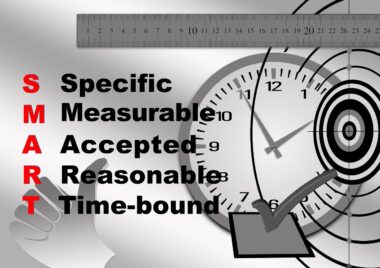Balancing Ambition and Realism in Fitness Goal Planning
Setting realistic fitness goals is crucial for effective weight maintenance. When individuals aim too high, discouragement can set in quickly. A good starting point is to evaluate current fitness levels and define what can be realistically achieved over a specific time frame. Goals should be SMART: Specific, Measurable, Achievable, Relevant, and Time-bound. This clarity helps prevent frustration and cultivates a sense of achievement. Additionally, those assessing their objectives should modify them as fitness levels change. Consistent review of goals allows adaptation to new routines, maintaining motivation. For example, if losing five pounds proves easy, setting a subsequent goal that is realistic yet challenging can keep engagement high. Moreover, including short-term milestones along the way fosters continual growth, providing little victories that contribute to the bigger picture. Surrounding oneself with supportive communities—both online and offline—can further enhance accountability. Others can inspire and affirm progress, which can be incredibly motivating. Integrating physical activities into a routine should also reflect personal interests, ensuring commitment over time without burning out on seemingly tedious regimens.
In the pursuit of weight maintenance, monitoring progress plays a central role in achieving goals. Utilizing fitness apps or wearables can effectively track routine and measurable progress. An app may offer insights into workout frequency, duration, or calorie expenditure, allowing users to visualize their growth. This not only emphasizes achievements but also highlights areas needing improvement. Additionally, consider incorporating qualitative assessments of well-being, such as energy levels or mood stability over time alongside quantitative data. When individuals can see both physical and emotional progress, they cultivate a deeper understanding of holistic health. Programs also encourage setting goals that align with personal aspirations—whether it’s fitting into a favorite outfit or completing a challenging hike. These emotional stakes can drive consistency and commitment over time. Furthermore, it’s vital to celebrate successes, however small, as they provide intrinsic motivation. Acknowledgment can come in various forms: from rewarding oneself with leisure activities to sharing milestones with friends and family. These supportive interactions create a positive reinforcement loop, enhancing satisfaction. Understanding that each step contributes to a longer journey encourages ongoing perseverance and a balanced approach in fitness journey.
Crafting Achievable Plans for Success
Crafting an achievable fitness plan embodies more than just setting goals. It involves devising actionable steps that align with one’s daily life. A successful plan includes practical elements such as scheduled exercise, nutritional guidelines, and recovery time. Individuals should consider their existing commitments and energy levels when implementing these changes. Prioritizing consistency over intensity generally yields sustainable results. For example, replacing a sedentary activity with a 30-minute walk daily is achievable and highly beneficial. Creating a schedule that supports fitness goals allows for steady progress while maintaining an enjoyable routine. Finding an activity that resonates personally, whether it’s dancing or swimming, can beautifully blend passion with purpose. It’s essential to experiment with different approaches, ensuring the plan feels manageable without being boring. Moreover, allocating time for regular evaluation and adjustment helps retain accountability and awareness of progress. Enlisting a workout buddy can further enhance motivation through shared experiences. Fitness doesn’t have to be a solitary journey; engaging with others promotes social interaction, adds fun, and creates communal support.
Cultivating a growth mindset is key in weight maintenance journeys. This mindset embraces challenges and setbacks as opportunities for growth rather than as failures. Developing resilience is particularly important in times when motivation may wane or fatigue sets in. Individuals should remind themselves that fluctuations in progress are natural and can be part of the experience. This perspective encourages a more compassionate approach to self-assessment and paves the way for continued exploration of fitness options. When faced with setbacks, reflecting on initial motivations can help reaffirm commitment to goals. Reassessing why they started the journey can reignite the drive needed to move forward. Daily reminders—like motivational quotes or vision boards—can keep these foundational motivators visible and prominent. Flexibility in adapting plans can also enhance success; if a particular approach isn’t working, it’s okay to try something new, such as varying exercise styles or meal prepping. Emphasizing the importance of self-care is crucial in maintaining mental strength throughout the journey, enabling individuals to celebrate their own uniqueness while continually striving for improvement.
Integration of Support Systems
The integration of support systems plays a pivotal role in maintaining fitness goals. Environments that promote healthy living can foster continued motivation and accountability. Research indicates that surrounding oneself with like-minded individuals—such as family, friends, or workout groups—tends to enhance commitment to fitness. Participation in group activities or classes can provide numerous benefits, including consistency and social interaction. These settings not only offer inspiration but also encourage healthy competition among peers, pushing one another to achieve their respective goals. Engaging with an online community can be equally beneficial, with digital platforms providing various opportunities for connection, sharing experiences, and obtaining advice. Following fitness influencers on social media or joining forums dedicated to weight maintenance can amplify motivation and provide access to insightful resources. Furthermore, consulting professionals—such as personal trainers or nutritionists—can deliver tailored guidance to keep an individual on track. It’s vital to remember that asking for help is a sign of strength, open channels for assistance signify commitment to one’s journey and recognizing that collaboration enhances overall success.
Maintaining fitness goals often demands an awareness of nutrition’s role. Contrary to misconceptions, leading a healthful lifestyle doesn’t have to be restrictive or dull—it can be diverse and flavorful. Gradually incorporating nutritious options into daily meals makes the transition smoother and sustainable. Focusing on whole foods, including fruits, vegetables, whole grains, and lean proteins, creates a robust foundation for lasting health. Additionally, individuals should prioritize mindful eating practices, such as recognizing hunger cues and savoring meals without distraction. Awareness cultivates appreciation for nutritional choices and enhances enjoyment. Exploring new recipes or trying different cuisines can keep the nutritional aspect of lifestyle changes exciting, prompting continued engagement with healthy eating without it feeling like a chore. Moreover, addressing emotional triggers related to food is crucial. Some may find that stress or boredom leads them to eat mindlessly; implementing alternative coping mechanisms, like exercise or hobbies, offers healthier outlets. Celebrating culinary successes—whether trying a new dish or successfully meal-prepping for the week—contributes positively to a long-term vision of health, ensuring that nutrition complements overall fitness goals in a delightful manner.
Final Reflections on Sustainable Fitness
Final reflections on sustainable fitness emphasize the importance of accommodating physiology and adopting a balanced lifestyle. Entrenching fitness goals within a holistically designed framework promotes longevity in weight maintenance. By nurturing both physical and mental components, individuals can create a progress-driven perspective rather than an outcome-focused mindset. Acknowledging that setbacks do not equate to failure fosters forgiveness and adaptability, encouraging ongoing resilience in routines. Changes should feel enriching rather than merely obligatory; celebrating the nuances of the journey creates a sense of accomplishment. Embracing flexibility fosters innovation and exploration, which can revitalize motivation through innate curiosity. Aligning goals with personal philosophies or values deepens investment; when fitness resonates with inner aspirations, commitment remains strong. Further, considering industry trends can help individuals navigate changing landscapes, ensuring goals continue evolving in tandem with personal growth. Remaining inquisitive about health can lead to discovering enjoyable practices that reinforce sustainable habits. Ultimately, crafting a fulfilling fitness journey should embody exploration within a realistic framework, balancing ambition with realism, nurturing both body and mind throughout the process in endless potential for improvement.
Together, these principles illuminate the intricate relationship between ambition and realism in fitness goal planning. Individuals must approach the nuances of goal setting with patience and reflection, cultivating a path that champions personal progress and holistic wellness. As one embarks on crafting their unique fitness narrative, the journey is as valuable as the destination. Cultivating this mindset equips individuals to embrace both achievements and challenges, creating a narrative not solely defined by outcomes. Setting realistic goals, continuously assessing and refining plans, and surrounding oneself with support structures enrich the experience, culminating in a fulfilling commitment to sustainable, healthy living. Furthermore, integrating self-compassion enhances resilience, prompting a balanced approach over rigid adherence to expectations. Ultimately, success in maintaining weight transcends beyond restrictive standards; it embodies embracing dynamic health practices that adapt through time. Engaging passionately with one’s fitness journey leads to lifelong commitment, with continuous exploration contributing significantly to overall well-being. In remaining attuned to the body, seeking pleasurable experiences, and knitting ambition into a realistic framework, individuals weave a tapestry of lasting fitness success that celebrates every step along the way.





